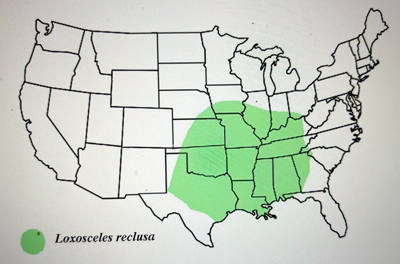Read Our Blog
Colleen Reisz, MD September 21, 2025
Understanding Laryngopharyngeal Reflux (LPR)
Laryngopharyngeal reflux (LPR) is a condition in which stomach acid flows back up into the throat (pharynx) and voice box (larynx), irritating the lining of these areas. Often referred to as “silent reflux,” LPR differs from the more commonly known gastroesophageal reflux disease (GERD) because it frequently occurs without the hallmark symptom of heartburn.
Causes and Mechanism
LPR occurs when the upper esophageal sphincter (UES), a ring of muscle that separates the esophagus from the throat, fails to function properly. This allows acid and digestive enzymes from the stomach to travel upward into the throat and voice box, where the tissues are much more sensitive to acid than the lining of the esophagus.
Symptoms of LPR
Symptoms of LPR can be subtle and are often mistaken for other conditions. Common signs include:
- Chronic cough
- Hoarseness or voice changes
- Sensation of a lump in the throat
- Frequent throat clearing
- Sore throat
- Difficulty swallowing
- Excess mucus or postnasal drip
Unlike GERD, patients with LPR may not experience heartburn, making diagnosis more challenging.
Colleen Reisz, MD September 21, 2025
Why brown recluse bites are concentrated in certain areas
 Many solitary skin lesions are attributed to brown recluse bites, although they are uncommon and typically only found in areas where the spiders are native. Kansas City is one of those native areas, as seen in the map above. They prefer warm, undisturbed areas such as attics, closets and basements. Brown recluse spiders are generally not aggressive and only bite when provoked or accidentally trapped.
Many solitary skin lesions are attributed to brown recluse bites, although they are uncommon and typically only found in areas where the spiders are native. Kansas City is one of those native areas, as seen in the map above. They prefer warm, undisturbed areas such as attics, closets and basements. Brown recluse spiders are generally not aggressive and only bite when provoked or accidentally trapped.
- Older infrastructure: Cities like Kansas City and St. Louis, with their older buildings and basements, provide ideal hiding spots for brown recluses. These spiders are attracted to the dark, quiet and undisturbed places found in older homes.
- Abundant hiding places: The spiders gravitate toward quiet, tucked-away indoor places like closets, attics, storage rooms and basements. They will also settle into cardboard boxes, piles of laundry or behind furniture and wall hangings.
- Outdoor harborage: Outside, brown recluses can be found in woodpiles and sheds, which are common in many residential and rural areas of Missouri.
- Clutter: Areas with significant clutter, both indoors and outdoors, create numerous hiding spaces that allow brown recluse populations to thrive, increasing the chances of an accidental bite.
by Brian Hendricks, DO September 21, 2025
Sudden hearing loss, also known as sudden sensorineural hearing loss (SSNHL), is a rapid and unexplained loss of hearing, typically occurring in one ear. It can happen instantly or over the course of several hours to a few days. While it may be alarming, many people mistakenly delay treatment, assuming it will resolve on its own. However, sudden hearing loss is a medical emergency, and early intervention can significantly improve outcomes.
What Is Sudden Sensorineural Hearing Loss?
SSNHL is defined as a hearing reduction of 30 decibels or more over at least three consecutive frequencies, occurring within 72 hours or less. It usually affects only one ear and often appears upon waking or is noticed when using the phone or listening in noisy environments.
Unlike conductive hearing loss (caused by blockages like earwax or fluid), SSNHL results from issues in the inner ear cochlea or auditory nerve.
Symptoms
The hallmark symptom is sudden deafness in one ear. However, people may also experience:
- A feeling of fullness or pressure in the affected ear
- Tinnitus (ringing or buzzing in the ear)
- Dizziness or balance issues
- Difficulty understanding speech, especially in noisy environments
- Sound distortion
These symptoms may occur alone or in combination.
Self-Treatment for Acne: Simple Steps for Clearer Skin
Your skin is your body’s largest organ and first line of defense — prioritizing its health is essential. Over-the-counter products like face soaps, creams and supplements abound, but there’s no “one-size-fits-all” solution. A thorough physical exam and medical history, available at Midwest Medical Specialists, helps us recommend the best approach for you.
At home, you can improve acne with these self-care tips:
- Wash your face gently twice daily with a mild cleanser.
- Use water-based makeup instead of oil-based products.
- Apply sunscreen daily to protect your skin.
- Avoid squeezing or scratching pimples, wearing tight headbands or hats, touching your face or using greasy cosmetics.
If self-care doesn’t clear your acne, it’s time to see a dermatologist.
 As part of a complete early detection strategy, we recommend that you see a dermatologist once a year, or more often if you are at a higher risk of skin cancer, for a full-body, professional skin exam.
As part of a complete early detection strategy, we recommend that you see a dermatologist once a year, or more often if you are at a higher risk of skin cancer, for a full-body, professional skin exam.
To help you prepare and make the most of your appointment, follow these five simple steps.
- Perform a self-exam and come to your appointment prepared with notes about any new, changing or unusual spots you want to point out to your dermatologist. If you’ve taken smartphone photos of a spot that has changed over time, be sure to show them to your dermatologist.
- Remove nail polish from your fingers and toes to enable thorough examination of fingers, nails and nail beds, since skin cancers can form there.
- Wear your hair loose. Remove pony tails, buns or hair clips so that your doctor can get a good look at your scalp where skin cancers can, and do, develop.
- Pack makeup remover to bring to your appointment and remove any makeup before your exam so that the skin around your eyes is easy to examine.
- Ask questions. This is your opportunity to get valuable advice and insight from a professional trained specifically in diseases of the skin. From explanations of unfamiliar terms to pointers on how to do a skin self-exam, your doctor is an excellent source of information!

